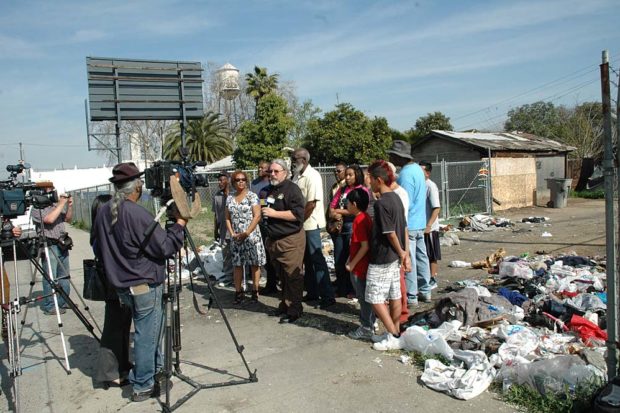
By Hannah Brandt
At the time I am writing this it has been three weeks since election night. It has been an overwhelming month. I know many people are still in shock from the results. In some ways, it does not seem real that Donald Trump will be president, in other ways it is far too real. Even though I knew it was possible and had many concerns it would happen, it still is somewhat impossible to wrap my head around the fact. We saw it coming and then again we did not.
Every day produces a new shock, between the wildly false assertions Trump makes on social media to his frenzied parade of unqualified and unethical cabinet choices. This spectacle is exactly what Trump has thrived on all along. For several days I could not watch the news because I could not stand to see and hear this man who has done and said so many violent things toward innocent people during the campaign that his vile words took up two full pages in the New York Times. Nor to hear anyone call him President-elect Trump.
I also could not stomach the normalization of his words and actions by mainstream media. Someone I heard described it perfectly, most of the media treated Trump and his racist and misogynistic vitriol like “just another dish on offer” on the political menu. Too much of the public dutifully ate it up. At the beginning of the campaign the major television networks and cable news gave Trump round the clock exposure without any push back on the horrific hatred and lies he spouted. By the time criticism was finally launched, it was too late.
As Chief International Correspondent for CNN Christiane Amanpour declared: “Much of the media was tying itself in knots trying to differentiate between balance, between objectivity, neutrality, and crucially, the truth. We cannot continue the old paradigm. We cannot, for instance, keep saying, like it was over global warming. When 99% of the science, the empirical facts, the evidence, is given equal play with the tiny minority of deniers… I learned a long, long time ago… never to equate victim and aggressor. Never to create a false moral or factual equivalence… So I believe in being truthful, not neutral. And I believe we must stop banalizing the truth. We have to be prepared to fight especially hard right now for the truth.”
There has been a lot of speculation about why he won and how. Which demographics chose to either embrace or overlook his mountain of deplorable actions and words due to promises of change? While the mainstream media narrative, which has taken its cue from Trump himself, focuses on rural working class whites in the Upper Midwest (otherwise known as the Rust Belt) the exit polling shows he won with a solidly middle to upper middle-class base. The majority of those who make under $50,000 a year voted for Hillary.
My read is that it was not people who have struggled to survive the Great Recession who voted for him as much as affluent rural whites, those in power in industries like corporate agriculture. It is certainly who he won in California. These are people who claim to fear their way of life will be destroyed by globalization and immigration, but there is no evidence for it. We are poised to continue to have an underclass of people of color exploited for their labor in cities, suburbs, and rural areas. It will take our constant efforts to prevent this.
For Trump and those who voted for him, the evidence is irrelevant. It is clear that Trump misled some desperately poor white Americans to believe he would bring back jobs he cannot or very obviously will not. This was especially true in Appalachia, otherwise known as coal country. It is an area that has been tethered to one dying industry for generations, generations who now feel terribly hopeless. People hear what they want to hear, especially those who fear the future and a rapidly changing world. Of course, many of us who vehemently opposed Trump have very valid fears about the head-spinning changes going on in our exceedingly corporately controlled world, too.
There are clearly deep divisions within our nation, and local communities, that must be bridged. But we must not bridge them through whitewashing. These are divisions that have been with us for our entire history, set in motion by some of the foundations of our government. After this election, it is even harder to see how to achieve that when hatred for the most vulnerable in society, was embraced. Too many are ignorant of or deny the traumatic facts of our history and how we got here.
With a dramatic increase in hate crimes and bullying in schools, it is hard to not feel depressed at the potential for further destruction of civil rights. But we must not give up hope or stop fighting for justice. There are many ways to get involved and we will highlight as many as we can in Community Alliance in the months and years to come.
We always welcome your stories and would like to hear your thoughts on Trump’s inauguration in January for our edition next month: your fears, your hopes, your triumphs.
Peace and love this holiday season.
